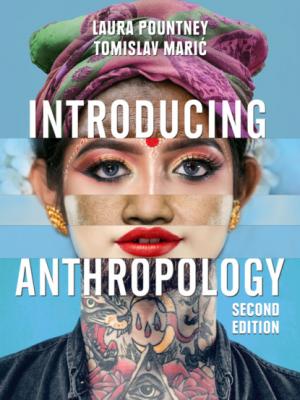ТОП просматриваемых книг сайта:
Introducing Anthropology. Laura Pountney
Читать онлайн.Название Introducing Anthropology
Год выпуска 0
isbn 9781509544158
Автор произведения Laura Pountney
Жанр Культурология
Издательство John Wiley & Sons Limited
intelligent design Also known as neo-creationism, the belief that the current state of life on Earth has come about through the actions of an intelligent designer; this designer need not be God, but most proponents of intelligent design seem to have God in mind
mammal Any warm-blooded vertebrate animal, including humans, characterized by a covering of hair on the skin and, in the female, milk-producing mammary glands for feeding the young
natural selection The process in nature by which, according to Darwin’s theory of evolution, only the organisms best adapted to their environment tend to survive and transmit their genetic characteristics in increasing numbers to succeeding generations, while those less well adapted tend to be eliminated
omnivorous Ability to eat and survive on both plant and animal matter
opposable thumb A thumb that is sufficiently separate from the other fingers of the hand to allow for precision grip
paleoanthropology The study of extinct early primates and fossil remains of early primates
paleontology The study of life on earth, often drawing on information provided by fossils
primate A mammal of the order Primates, characterized, for example, by refined development of the hands and feet and a large brain
racism Discrimination against an individual or group based on their perceived ethnicity and the idea that ‘race’ is a fixed and bounded reality
sexual dimorphism This refers to both the internal and the external differences between males and females found in a variety of animals and plants
sociobiology An area of biology that aims to explain social behaviour in terms of evolution
symbol Something that is used to represent an idea or object
taxonomy The classification of organisms in an ordered system that indicates natural relationships
PERSONAL INVESTIGATION
Visit your local zoo, or the internet, and investigate the bonobos and chimpanzees. Consider the ways in which humans share biological attributes and discuss the impact of this on the behaviour of the primates. Consider the ways in which the primates relate to one another and how they use their space and arrange social relations. Explore and investigate the extent to which captivity affects their behaviour. Make notes on any cultural characteristics you see – for example, in terms of hierarchy. Draw up a detailed report on your findings.
Suggested further sources
Books
Barnard, A. (2011) Social Anthropology and Human Origins. Cambridge University Press.
Kuper, A. (1994) The Chosen Primate: Human Nature and Cultural Diversity. Harvard University Press.
Lieberman, D. (2014) The Story of the Human Body: Evolution, Health and Disease. Penguin.
Mithen, S. (2005) The Singing Neanderthals: The Origins of Music, Language, Mind and Body. Phoenix Press.
Roberts, A. (2017) Tamed: 10 Species That Changed Our World. Hutchinson Press.
Rutherford, A. (2017) A Brief History of Everyone Who Ever Lived: The Stories in Our Genes. W&N Press.
Wrangham, R. (2009) Catching Fire: How Cooking Made Us Human. Profile Books.
Ethnographic films
BBC, The Incredible Human Journey (2009), presented by Alice Roberts
BBC, Origins of Us (2009), presented by Alice Roberts
BBC, Prehistoric Autopsy (2012), presented by Alice Roberts
BBC, Racism: A History (2007)
PBS, Race: The Power of an Illusion (2013) 3-part series
Vital Pictures, Herskovits at the Heart of Blackness (2009)
Websites
American Anthropological Association: www.understandingrace.org (a great website for understanding the concept of race and all the problems associated with it)
American Anthropological Association, Statement on Race: www.aaanet.org/stmts/racepp.htm
American Association of Physical Anthropologists: https://physanth.org/about/position-statements/aapa-statement-race-and-racism-2019/
Smithsonian Institution: http://humanorigins.si.edu (gives an excellent interactive overview of human evolution)
CHAPTER 2 Research Methods
Contents
3 The history of anthropological research methods
4 Factors influencing choice of research method
10 Conclusion
12 Key terms
Key issues and debates

